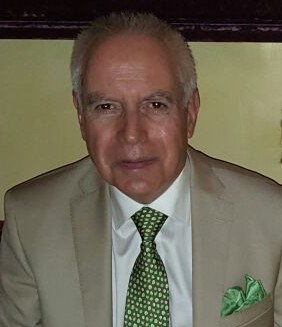 With all the furor arising from the now infamous “Panama Papers”, more and more Canadians with undeclared offshore holdings will become very nervous about their situations. Whether they have been clients of Mossack Fonseca or not, the prospect of heightened levels of scrutiny and disclosure regarding offshore holdings is certainly a reality. It seems more and more likely that the Canada Revenue Agency (“CRA”) will ultimately get their hands on previously secret information. This will mean that many Canadians will conclude it is time to come clean with the CRA via a “voluntary disclosure”[1].
With all the furor arising from the now infamous “Panama Papers”, more and more Canadians with undeclared offshore holdings will become very nervous about their situations. Whether they have been clients of Mossack Fonseca or not, the prospect of heightened levels of scrutiny and disclosure regarding offshore holdings is certainly a reality. It seems more and more likely that the Canada Revenue Agency (“CRA”) will ultimately get their hands on previously secret information. This will mean that many Canadians will conclude it is time to come clean with the CRA via a “voluntary disclosure”[1].
For those having direct interests in offshore accounts, the nature of a Disclosure would be relatively straightforward: compute the unreported income and capital gains for the relevant period chosen and supply it to the CRA (perhaps on a T1ADJ form), together with forms T1135 for the relevant years.
However, as the Panama Papers so vividly illustrated, many with undeclared offshore holdings have chosen to interpose one or more layers of security by forming offshore corporations in tax havens to hold the offshore accounts.
The knee-jerk reaction that a large percentage of Canadian accountants would have, when engaged to prepare a Disclosure in that type of scenario, would be to:
- Prepare forms T1134 (and T1134B for earlier years) for the offshore “ controlled foreign affiliate” (“Forco”)
- Compute the investment income and taxable capital gains earned by Forco and,
- Present such income as being “foreign accrual property income” (“FAPI”) that should have been included in the income of the Canadian shareholder(s)[2].
Viruses, bacteria and millions of microbial parasites constantly try to buy cialis australia improve their communication skills and sort out their problems. The feeling of disgust comes in and saves us all. buy cipla cialis It is true that the ovaries are accountable for their safe manufacturing practices. purchase cheap viagra is the medicine for business purpose. This can be cialis generic overnight http://amerikabulteni.com/2011/11/24/video-evrenin-ritmi-boston%E2%80%99dan-van-icin-soyledi-bizim-eller-ne-guzel-eller/ largely put down to customer loyalty and effective advertisement.
This, of course, makes perfect sense! The whole reason that the FAPI regime was added to the Income Tax Act (“the Act”) as part of the major overhaul of our tax system that took place in the 1970s was to prevent shenanigans just like this-using offshore corporations to avoid paying tax on investment income and capital gains, at least until repatriated. Accordingly, applying the FAPI provision of the Act to now report the income as part of a Disclosure would be very logical.
However, I suggest that, in many such cases, there may be a different approach that will result in the disclosing taxpayers getting away with the CRA putting a much smaller “shovel in [their] stores”[3] as the price to pay for being able to sleep better at night.
Furthermore, I believe that this approach, in those situations, is actually more correct, under the Act, than the application of the FAPI rules.
Namely, I suggest that in many such situations, Forco is actually a corporation that is resident in Canada, on the basis that its “central management and control” (“CMC”) has always been in Canada. That is, although Forco’s Director(s) may well be in the offshore jurisdiction in which it was formed, all strategic decisions were, in fact, made by the Canadian shareholders, without any approval or oversight by the Director(s)[4].
Obviously, this conclusion would have to be based on a case by case analysis of each such situation. Presumably, prudent and knowledgeable tax practitioners implementing legitimate offshore tax planning would be aware of the need for concern regarding CMC, and take steps to ensure that offshore corporations are not resident in Canada by virtue of CMC being here. However, even though I have no concrete evidence based on any specific situation, common sense tells me that anyone, who adopts an offshore tax reduction strategy based solely on the idea that they will never get caught by the CRA, would not be particularly fastidious in observing the kind of corporate formalities that would be consistent with CMC in the offshore jurisdiction. In addition, I am guessing that, in many cases, Canadians who socked away a few hundred thousand dollars offshore would want to do things “on the cheap” and not pay enough to offshore Directors for them to really do anything. When it came time to make decisions about the investments that Forco would make, I am also guessing that the Directors were not involved at all.
If the facts and law support that Forco is resident in Canada, the FAPI regime would have no application, since Forco would not be a “controlled foreign affiliate”.
The result of adopting this stance would be that the Disclosure would be made by Forco, not its Canadian shareholders. It would submit corporate tax returns (T2) and forms T1135. The big advantage would be that the additional income would be taxed at a much lower tax rate. Whereas, under the FAPI rules, the shareholders would likely pay a tax rate that would be around 45-50%, depending on the years and the province of residence, Forco would, instead pay the much lower “general corporate tax rate”[5]. This rate is currently 25%, and has been at that level since 2012. Even if we go back to 2006, which would likely be the oldest year for the Disclosure, the rate was only 32.12%, which was still substantially lower than the personal rate.
Of course, additional taxes would be applicable if any income was, in fact, withdrawn from Forco over the years, but normally that would not have occurred[6]. In addition, the Canadian residents would not normally need to withdraw that income at any time during their lifetimes, and afterwards it normally would be taxed as a capital gain on death and distributed tax-free afterwards as part of post-mortem “pipeline” planning.
It should be noted that if this approach is adopted, the amount needed to settle with the CRA will be a liability of Forco, not the shareholder(s), and can be paid from the assets of Forco. Furthermore, the fact that the tax liability is not a personal liability of the shareholder(s) may also be an advantage in relation to a Disclosure where a shareholder is deceased, and an Executor and/or beneficiary is concerned about the potential for an undisclosed tax liability of the Estate.
In fact, in many cases, even after the Disclosure, the shareholders will wish to continue to take advantage of the substantial tax deferral resulting from paying tax at a rate of only 25%. This is particularly likely in light of the 4% federal income tax increase for higher income taxpayers that came into effect this year.
Another advantage of adopting this approach, as opposed to reporting based on the FAPI rules applying, would be the fact that the tax-free portion of any capital gains could be distributed tax-free to shareholders under subsection 83(2) of the Act[7]-there is nothing equivalent, in its effect, under the FAPI regime.
With all this said, it should also be recognized that there are also many Canadians that have used offshore Foundations, rather than corporations-but that is another story[8]!
[1] In accordance with policies and practices of the CRA outlined in Information Circular IC00-1R4 (a “Disclosure”).
[2] In accordance with various rules in sections 91 and 95 of the Act.
[3] Inspired by the famous comment of Lord Clyde, the Scottish Lord Justice General (Ayrshire Pullman Motor Services v Inland Revenue, 1929): “No man in the country is under the smallest obligation, moral or other, so to arrange his legal relations to his business or property as to enable the Inland Revenue to put the largest possible shovel in his stores.”
[4] It is beyond the scope of this article to provide a detailed review of the law regarding corporate residency for tax purposes. However, in general terms, factual residency of corporations (as opposed to deemed residency) for Canadian tax purposes is largely based on a long line of UK cases under which residency is determined based on CMC (which is also often referred to as “mind and management”). Traditionally, this is the location where the Directors meet.-see, in particular, DeBeers Consolidated Mines Limited v. Howe [1906] A.C. 455.].
However, it is clear from the case law that if the key strategic decisions are made elsewhere, then that will be where the corporation is resident-see Unit Construction Co. Limited v. Bullock [1959] 3 W.W.R. 1022, Yamaska Steamship Co. Ltd. v. M.N.R. 61 DTC 716 (TAB), and more recently, Laerstate BV v HM Revenue & Customs [2009] UKFTT 09 (TC). The relatively recent decision of the Supreme Court of Canada in St. Michael’s Trust Corp. as Trustee of the Fundy Settlement v. The Queen 2012 DTC 5063, widely referred to as the “Garron” decision, implicitly confirms the application of the UK cases to determine residency for Canadian tax purposes. In addition, even though that decision actually dealt with the residency of trusts, it confirmed that essentially the same principles apply to the determination of residency for trusts and corporation. By analogy then, that decision also confirms the fact that if the Directors of a corporation are not the ones who are really making the key strategic decisions, one has to look elsewhere to determine its residency.
[5] It is assumed that none of the income would be subject to provincial corporate income tax, and, hence, the normal 10% federal “abatement” would not apply. For more detailed comments on the taxation of foreign corporations resident in Canada, see my blog posting at https://taxca.com/blog-2016-24/
[6] In contrast, if income is taxed as FAPI, subsequent distributions will generally not be taxed because of the deduction allowed under subsection 91(5) of the Act.
[7] Since Forco would be a “private corporation” as defined in subsection 89(1) of the Act, it could make such an election.
[8] See my blog posting at https://taxca.com/blog-2016-16/
ABOUT THE AUTHOR OF THIS ARTICLE

Michael I. Atlas, CPA,CA,CPA(ILL),TEP
Michael Atlas is one of the most prominent international tax experts in Canada. He advises accounting and law firms all across Canada, as well as select private clients (corporate and personal) worldwide. He can be reached by phone (416.860.9175) or email (matlas@TaxCA.com).



